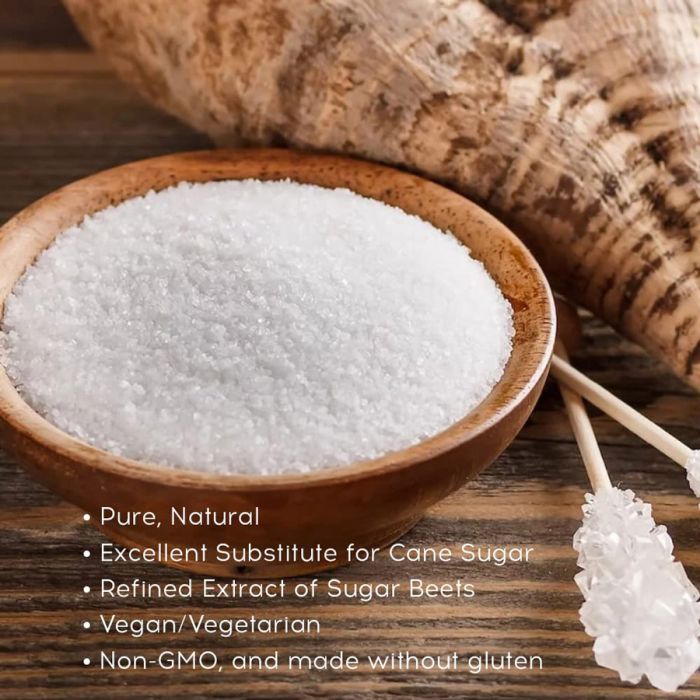The sourcing of beet sugar vs cane sugar affects eco-friendliness in the sugar industry.
The sourcing of beet sugar vs cane sugar affects eco-friendliness in the sugar industry.
Blog Article
Discover the Uses and Advantages of Beet Sugar Vs Cane Sugar in Your Daily Diet Regimen
Checking out the distinct high qualities of beet and cane sugar discloses more than simply their sweetening capacities; it highlights their distinct effect on wellness and cooking arts. Beet sugar, understood for its subtle taste, is usually favored in delicate treats, whereas cane sugar, with its tip of molasses, adds splendor to robust recipes. Each kind holds its own dietary profile and glycemic ramifications, inviting a much deeper understanding of their roles in a balanced diet regimen and sustainable consumption techniques.
Beginning and Production Procedures of Beet and Cane Sugar

The distinct climates and soil kinds needed for expanding sugar beetroots and sugarcane contribute to differences in their growing methods and geographic circulation, affecting the economics and sustainability of their production. beet sugar vs cane sugar.
Nutritional Contrast Between Beet Sugar and Cane Sugar
Despite originating from various plants, beet sugar and cane sugar are nutritionally really comparable, both mostly including sucrose. Each provides concerning 4 calories per gram, equating to roughly 16 calories per tsp. Structurally, both sugars are composed of around 99.95% sucrose, with marginal quantities of various other materials like dampness and trace minerals, which do not considerably change their nutritional accounts.

Ultimately, when choosing between beet sugar and cane sugar based upon dietary content alone, both deal the same benefits and downsides as they are essentially forms of the very same molecule-- sucrose, giving quick power without various other nutrients.
Effect On Health And Wellness: Glycemic Index and Caloric Material
Exploring further into the impacts of beet sugar and cane sugar on health and wellness, it is necessary to consider their glycemic index and calorie web content. Both sugars are identified as sucrose, which includes sugar and fructose. This make-up leads them to have a comparable influence on blood sugar level degrees. The glycemic index (GI) of both beet and cane sugar is around 65, classifying them as high-GI foods, which can create fast spikes in blood sugar degrees. This is a critical aspect for people taking care of diabetes or those trying to support their energy levels throughout the day.
Each kind of sugar contains about 4 calories per gram, making their calorie web content equivalent. For those checking caloric consumption, specifically when handling weight or metabolic wellness problems, understanding this equivalence is vital (beet sugar vs cane sugar). Nevertheless, too much usage of any high-calorie, high-GI food can add to health and wellness problems such as obesity, cardiovascular disease, and insulin resistance.
Environmental and Economic Considerations of Sugar Production
Beyond health impacts, the manufacturing of beet and cane sugar additionally elevates significant ecological and financial worries. Sugar beet cultivation tends to need cooler environments and has a reduced geographical footprint contrasted to sugar cane, which grows in exotic more info here areas. However, both crops are intensive in regards to water use and land profession, possibly causing logging and water shortage. Economically, the global sugar market is very unpredictable, influenced by changes in international trade policies and aids. Numerous nations incentivize sugar production through financial support, skewing market prices and influencing small-scale farmers adversely.
In addition, making use of Extra resources pesticides and fertilizers in both beet and cane sugar farming can cause dirt destruction and air pollution, additional influencing biodiversity and regional water bodies (beet sugar vs cane sugar). The selection in between cultivating sugar beet or cane usually hinges on local ecological conditions and economic elements, making the sustainability of sugar manufacturing a complex problem
Culinary Applications and Taste Differences
While the ecological and economic facets of sugar manufacturing are undoubtedly substantial, the choice between beet and cane sugar additionally affects cooking applications and taste profiles. Beet sugar, stemmed from the sugar beet plant, is recognized for its incredibly neutral preference. This makes it a versatile active ingredient in cooking, where it does not alter the taste of various other parts. It liquifies rapidly and is ideal for use in cakes, cookies, and pastries.
Cane sugar, removed from sugarcane, typically maintains molasses traces, which impart a distinctive richness and deepness. This small molasses flavor boosts the intricacy of baked items, sauces, and sauces. It is especially preferred in things where a caramel touch is wanted, such as in brownies or gingerbread. The mild variation in wetness content between beet and cane sugar can influence the structure and consistency of recipes, making cane sugar a favored selection for particular recipes that profit from its one-of-a-kind residential or commercial properties.

Conclusion
To conclude, both beet and cane sugar have unique beginnings and production procedures, offering comparable nutritional accounts with mild differences in sodium web content and taste. While their effect on health and wellness, particularly pertaining to glycemic index and calories, is equivalent, the choice between them often comes down to ecological, economic variables, and specific culinary requirements. Recognizing these facets can guide customers in making notified decisions click to find out more that align with their wellness goals and taste choices.
Report this page